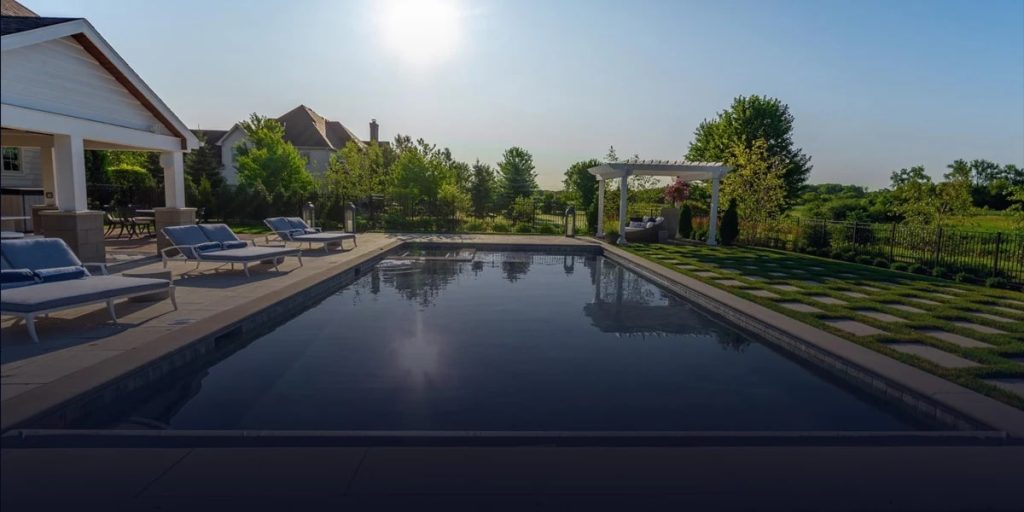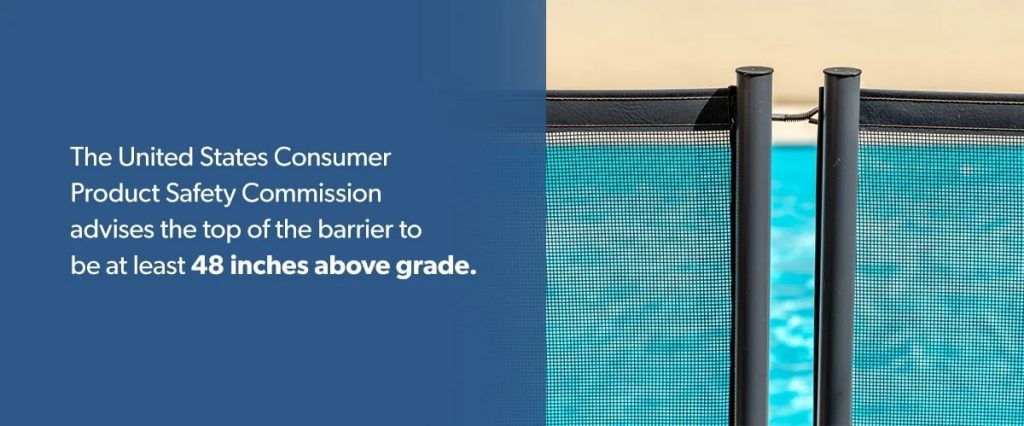

If you manage a rental property, your tenants will appreciate having access to an in-ground swimming pool on site. This amenity offers a much-needed refuge from the scorching sun. Residents and guests can relax, get some exercise and socialize with one another.
Maintenance and care are critical to ensure a safe, clean and enjoyable swimming area for everyone. Proper upkeep helps prevent contamination, sickness and injury, while extending the pool’s longevity.
Do landlords need to maintain pools for tenants? What pool safety measures should you take? Learn the answers to these questions and others in this handy guide.
Here are some advantages of adding a swimming pool to your rental property.
Yes — swimming pools are part of landlords’ responsibility to maintain safe common areas on the property. Whether you temporarily rent out a vacation home or provide long-term house rentals, you must keep pool users safe and prevent injuries on your property.
Improperly maintained pool water creates a breeding ground for viruses and bacteria. These microbes can make users sick and lead to ear, nose and throat infections, gastroenteritis and inflamed lungs and eyes. You could also be liable if a tenant or non-tenant sustains an injury by slipping or falling near the pool.
Unless you add a swimming pool liability waiver deeming tenants responsible for maintenance, you’ll be responsible for an incident in the following situations:
Swimming pool regulations vary by state, county and municipality. Understanding your area’s pool laws can prevent unwanted accidents and injuries. You can find state and local swimming pool codes and regulations online, so review these carefully. You can contact your area’s public sanitation or health department with any questions.
Here are some essential safety measures for your swimming pool.

If your city or municipality requires it, install a safety barrier like a self-closing latching gate around the swimming pool. Even if state or local laws don’t mandate safety barriers, adding them is in the best interest of young children and cautious parents.
The United States Consumer Product Safety Commission advises the top of the barrier to be at least 48 inches above grade. A child can climb over a safety barrier if it’s too low or has handholds or footholds. Some states, counties and cities require 60-inch pool barriers.
Consider adding a pool addendum to your lease agreement. This amendment outlines your property’s rules regarding swimming pool, hot tub, spa or jacuzzi use and defines all parties responsible for its maintenance.
Additionally, an addendum transfers pool or spa maintenance duties to the tenant. It doesn’t hold the landlord responsible for any pool-related negligence, damages or injuries to tenants and non-tenants.
You can find sample swimming pool liability waivers online, but it’s best to consult local counsel. Otherwise, you can hire a professional to maintain the pool and report any safety hazards requiring attention.
Here are some other pool safety measures to consider:
If you’ll be responsible for swimming pool repairs, maintenance and upkeep, it’s wise to choose a company to handle these tasks. To maintain a safe, clean swimming area for tenants, you’ll need to hire someone to:
Since taking care of a pool can be time-consuming, you will find it’s far easier to hire a company to handle these tasks for you. Here are some factors to consider when choosing a pool maintenance provider.
If you need a trusted installation, repair and maintenance company to handle your property’s unique swimming pool needs, look no further than Lotus Pools. We proudly serve the greater Chicagoland area and parts of Iowa, Michigan, Wisconsin and Indiana.
With years of industry expertise, an OEM-certified team of technicians, affordable services and no hidden fees, you can count on us to maintain a fun, clean and safe swimming area for tenants and visitors. Contact us today to learn more about our services or get a free quote!